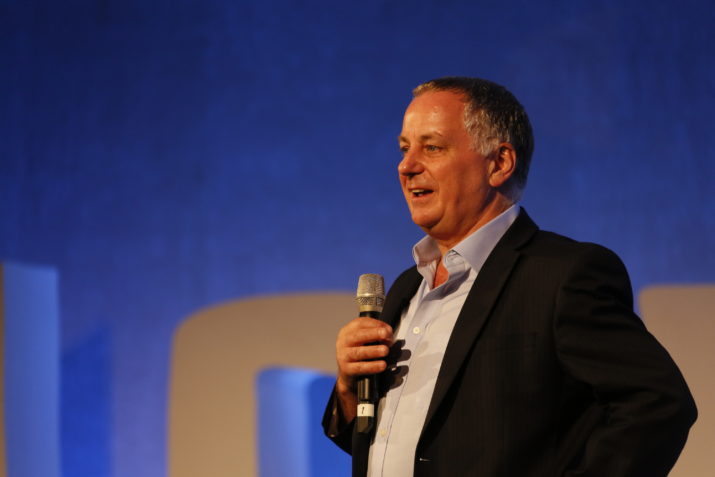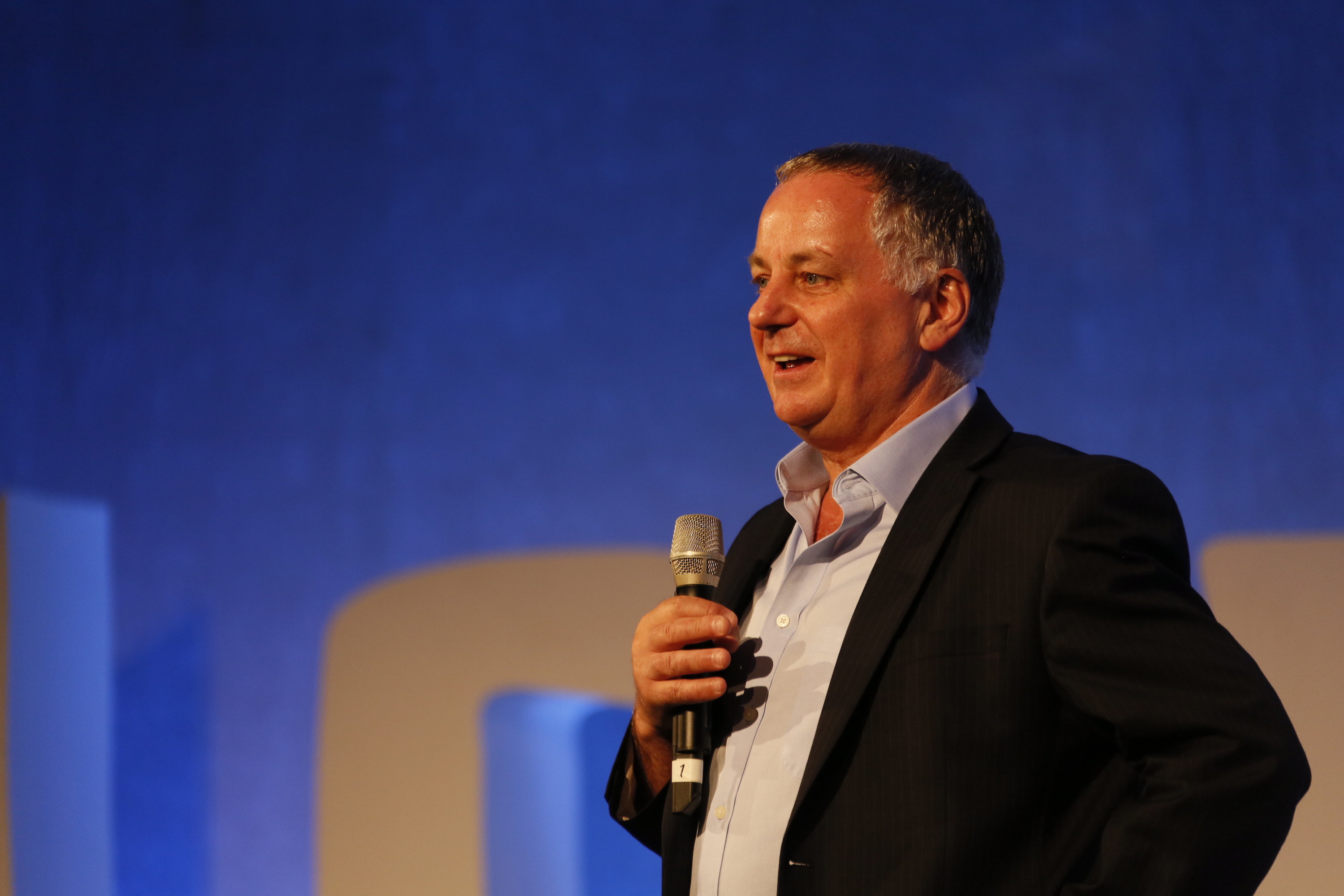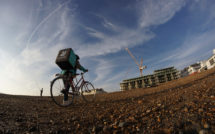

Ten years after stepping down as first minister of Scotland, Jack McConnell remains a busy man. I caught up with him by Skype in New York, where he was attending the UN meetings on development.
Now a member of the House of Lords, he is a veteran of the devolution campaigns of the 1990s and a strong European. As first minister, he was a leader of the movement for a stronger role for devolved regions and nations in the EU. What, I asked him, went wrong with last year’s Brexit referendum?
The problem, he tells me, was an absence of a vision for Europe. The Remain side could not explain where Europe was going, or the need for a broader solidarity. Instead, they focused narrowly on economic issues like the importance of the single market and on negative campaigning. David Cameron “had nothing positive to say”, repeating the mistake he made in the Scottish referendum of 2014 that helped bring the No side to the brink of defeat.
Nonetheless, McConnell believes the Brexit battle is over and sees little prospect of reversing the decision. He calls the country’s departure from the European Union “pretty inevitable”. Nor is he impressed by the current focus on the UK keeping the single market or something very close to it – recently floated by the likes of Chancellor Philip Hammond, for instance.
Future of Europe
Both inside the UK and elsewhere in Europe, McConnell detects a tendency to see the single market as an end in itself. He believes it needs to be part of a bigger picture. Instead of focusing on the technicalities of the single market, Europe needs a broader vision based on solidarity and the whole of the European continent. Instead of focusing narrowly on economics, it could take in a wider agenda, including security threats, climate change and values.
Even though the UK is leaving the EU, he thinks it could still take the lead in these respects by forging links and shifting public opinion. That, of course, would require some rethinking in the UK parties, including his own Labour party. The present Labour leadership under Jeremy Corbyn, he says, shows more interest in revolutionary movements around the world than in the future of Europe.
This overarching failure by politicians in Europe to focus on what the continent could become was one of McConnell’s main themes in a speech he recently gave in Glasgow at the International Conference of Europeanists. Focusing on the growing gap between politicians and the public, he talked about the role this played in the crisis in Europe and Brexit – as well as in the arrival of “outsiders” as leaders.
He urged a greater role for Europe in global poverty and development, a matter he pursued as first minister and to which he has devoted a lot of time in the House of Lords. Europeans can “help rekindle our own sense of purpose”, he told the audience, by sharing with other countries their experiences in power-sharing in areas with distinct identities within countries such as Scotland, Bavaria and the Basque country.
Little Britain
In the run-up to the Brexit referendum, McConnell tells me that he was not optimistic about the Remain campaign. He had predicted Leave’s victory and Scotland’s decision to Remain. What took him more by surprise was the result’s failure to reinvigorate the Scottish independence movement – he had expected it to become unstoppable.
In fact, he says, Brexit has made it harder for the SNP to win the argument: an independent Scotland in the EU risks being cut off from the UK market, which is more important for Scotland than the European single market. He also believes the public is wary of further change and uncertainty after two difficult referendums.
Instead, he says, Brexit provides an opportunity for securing more devolution for Scotland. Powers should come directly back from Brussels to Edinburgh – contrary to the proposals in the Withdrawal Bill published shortly before we spoke.
If powers were repatriated to the devolved administrations in Scotland, Wales and Northern Ireland, he believes this would allow them a more equal relationship with the UK government. Edinburgh could share powers in areas like fishing on a voluntary basis, for example, rather than by imposition from London.
McConnell also sees possibilities for Scotland to be more active on the world stage, something he considers neglected in ten years of an SNP government focused on independence. The paradiplomatic activity that he spearheaded as first minister was, he insists, a way of reinforcing the UK by recognising its plurality. He says it reflected the party’s commitment to “shared sovereignty, multilateralism and international cooperation”.
McConnnell’s vision of the UK accords with recent thinking in Scottish Labour circles. This includes Gordon Brown’s interventions and the adoption of federalism as official Labour policy, at Scottish if not UK level.
As the post-referendum research in the Centre on Constitutional Change has shown, it also chimes with public opinion, which has consistently wanted something less than independence but more than devolution. Even as opinion seemingly shifted away from No and towards Yes during the 2014 independence campaign, the underlying attitudes remained rather stable. It is just that more people thought that voting Yes was the better way to get there.
The question is whether Labour has arrived here too late as political opinion has polarised between the SNP’s independence and the Conservatives’ increasingly intransigent unionism, a polarisation accentuated by Brexit. The current disarray of the UK government and the lack of a majority at Westminster may open up some of these issues. If it does, it is not clear that the opposition parties are in a position to seize the opportunity.
Faced with this question, McConnell returns to the theme of vision and big ideas. He sees a need for a renewal of the political class, away from the professional politicians who have come to prominence since the 1970s, for whom politics is a way of life.
He agrees that Jeremy Corbyn has raised horizons, although not as much as has been claimed. Corbyn has showed a willingness to “stand up for ordinary people” and criticise the behaviour of private companies as well as government. On the other hand, says McConnell, he can be seen as part of a trend towards celebrity politicians and outsiders; a symptom of the current crisis rather than an answer.
In short, McConnell sees good and bad in the current climate: he welcomes the decline of the old deference and the growth of transparency but believes it has been accompanied by a crisis of faith in institutions and a loss of trust. There have been achievements in global development but severe poverty remains. Again and again, he stresses the role of ideas and vision in helping to turn this around. In a world that is increasingly voting against technocrats, the message is that ideas really do matter after all.
This article is part of a series on sustainability and transformation in today’s Europe, published in collaboration with The Conversation and the Council for European Studies (CES) at Columbia University.
Michael Keating was born in 1950, graduated from the University of Oxford in Philosophy, Politics and Economics in 1971, gained his PhD at Glasgow College of Technology (now Glasgow Caledonian University) in 1975,and received the qualification of Incorporated Linguist (Institute of Linguists) in 1981. He has a doctorate honoris causa from the Facultés Universitaires Catholiques de Mons (Belgium). He is a Fellow of the Royal Society of Edinburgh, a Fellow of the British Academy and an Academician of the Academy of Social Sciences.
Photo: Lord McConnell, DFID | Flickr




